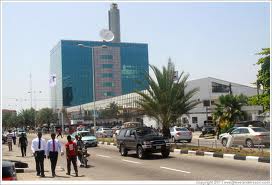Oil & Gas: Ghana – A Curse Foretold?
|
As I read the headlines, my mind raced to an article I wrote last year on my return from a tax conference in Accra. I hope my fears for our West African neighbours are not sliding to this ugly reality too soon. Here is the essay:
*******************************************************************************************************
Oil Economy: Mutual Lessons for Ghana and Nigeria
October 2012
Much has been written in recent time on how Ghana has been getting it right on many fronts, notably politics and economy. The decision of United States Presient, Barack Obama, to choose the country as one of the very few African countries he visited in 2009 was another strong statement on the place of Ghana in this region. Even if some of us that have strong presence on the internet are not happy with the negative and stereotypical attitude of many Ghanaians to matters Nigeriana, we still must give it to this country that best fits the description “Nigeria’s twin”, if anything like that exists. With such mixed impression about Ghana and Ghanaians, I was probably the most attentive at the Golden Tulip Hotel, Accra venue of an oil and gas tax professionals gathering, when respected Ghanaian economist and Tax practitioner, Mr Abdallah Alli-Nakyea, took us through developments in his country’s oil and gas sector. That Ghana is now an oil producing country is not the news, but the management of the resources in this country that has not fared bad, even in its pre-oil era.
Unknown to many people, including this writer until the Accra event, Ghana had actually started exploring for oil since the last quarter of nineteenth century, about the same time the process started in Nigeria. While hydrocarbon was discovered in commercial quantity in Ghana in 2007, Nigeria was already close to celebrating half a century of shipping crude oil. Today, Ghana produces about 120,000 bpd of crude oil in its Jubilee field. Ghana’s output per day, even when stripped to per capita terms, surely pales into insignificance compared to Nigeria’s 2.5m bpd, but with that country’s recent history in better management of resources, I will not be surprised if this country achieves more tangible results from its oil find than Nigeria has done in its over 50 years of being an oil producing nation. Yet, there are socio-political and economic lessons both countries can learn from each other as oil brings them further together.
As we rubbed minds at the Accra event, Eben Akinyemi, a Nigerian tax expert and lead facilitator, called attention to the worrisome stagnation in Nigeria’s crude oil output. Nigeria, Akinyemi noted, had hit 2m bpd milestone since the Gowon/Murtala/Obasanjo era of the mid-seventies, and in fact the popular statement allegedly by one of the top government official at the time that our problem was not funds but how to spend it, was hinged on this boom at a time our population was one-third of what it is today. The question now is, why is our production, thirty years later, still hovering around 2m to 2.5m bpd? This is very ironic given the fact that we now have many operators in the industry and billions of dollars have been pumped into the system since then. Definitely, this is not a path our West African brothers would want to tow.
Another very important pointer to Ghana’s foresightedness was putting in place petroleum legislations far back eighties, two decades before commercial oil find! It is noteworthy that Ghana National Petroleum Corporation (GNPC), the equivalent of our own NNPC, has been in existence since the early eighties. This is in contrast to our own fire brigade approach here.
Although the Ghanaian governments are now tinkering with their petroleum laws, akin to our PIB, a lot of the issues surrounding commercial arrangements in the industry have been settled by these laws that pre-dated petroleum production. This is a very important step by Ghana.
There is also the area of government take from the petroleum operations. Nigeria’s current PIB seeks to optimize (take that as increase) government’s take from the petroleum activities. This is mainly through royalties and taxes. Nigeria’s existing petroleum taxations framework takes between 50-85% of taxable income as taxes for companies engaging in petroleum operations. The PIB seeks to abrogate that and subject petroleum operating (upstream) companies to the Company Income Tax regime that takes 30% as tax, and introduces a new tax regime called Hydrocarbon tax at 50%. This effectively brings back the tax take to 85% of taxable income. Our Ghanaian brothers appear to be more lenient with 35-50% as tax take. The reason for this may be simply adduced to the fact that the country needs investors in the industry at this time and a friendly tax climate can only be helpful to the achievement of that goal. But a school of thought does not agree to this idea. To them, in countries where the government take are higher like Nigeria and Angola, the investors did not leave, why then does Ghana have to bend so low. I am inclined to agreeing with this line of argument.
Like many African countries, resource curse, otherwise known as Dutch Disease, is bedeviling Nigeria. Resource curse is a paradoxical situation where natural resources endowment ends up constituting setback to a country rather than bring positive impact. Nigeria as a country was better off before attention shifted to oil in the 1970’s as its main revenue spinner. I attended Obafemi Awolowo University Ile Ife and I am still amazed at the wonder income from agricultural produce (cocoa) did. The difference simply boils down to the management of these revenues. The Obafemi Awolowo, Samuel Ladoke Akintola, Tafawa Balewa, Ahmadu Bello, Nnamdi Azikwe, and Michael Okpara of that era managed the earnings from cocoa, groundnut, rubber etc so well that with the billion petro-dollars available to successive regimes after them, the country has continued to retrogress. Even though Ghana is not new to commercial production of natural resources, as it has been raking in million dollars from its Gold mine, whether the Dutch disease that followed Nigeria’s shifting of attention to oil will also affect its brother remains a question development economists are still asking. But good for them, signals are not pointing to that negative direction.
Ali-Nakyea in trying to draw similarities between Nigeria and Ghana in national politics, jokingly referred to how some events that happened in Nigeria repeated themselves in Ghana, most notably Nigeria losing a sitting president in 2009, and Ghana experiencing same three years later; plane mishap, even if minor, happening in Ghana on June 2, 2012 and a worse air disaster happening in Nigeria the next day. Probably motivated by the Niger Delta agitation they read of Nigeria, the southern Ghana youths have also come up under various platforms to agitate for right share in the revenue from oil produced in their region, even if their logic collapses when faced with the fact that the country has sustained on cocoa and gold produced in other regions before now. While I sympathize with our Niger Delta brothers in Nigeria, I do not think carrying arms against the state is something our coastal Ghana youths should borrow from Nigeria. The Ghanaian government, of course, will do well putting in place proper framework to take care of various concerns. Otherwise, this may turn out to be one of the legs that the octopoidal Dutch Disease may penetrate the former Gold Coast.
Still, the Nigerian factor, as a big brother in oil economy, can be helpful to Ghana in the development of its burgeoning oil industry. Apart from the lessons, deployment of human capital from Nigeria can also be useful to Ghanaian petroleum industry. The industry has been actively thriving in Nigeria for over five decades and it has groomed an excellent set of local workforce to service the sector. Nigerians have been OPEC Secretary Generals; Nigerians have held top positions in International Oil Companies (IOCs) across the world, looking in Nigeria’s direction for development of its oil potential will do both countries good.
Forget about the internet-savvy generation that has pitched a handful of youths from both countries together in the Social Media space, irrespective of the age-long football rivalry between the two countries, Nigeria and Ghana still remain brothers at peace. Joining us as an oil producing nation, even if their own economy is not yet oil-driven, Ghana and Nigeria can consolidate the longstanding relationship between them.
Established in March 2013, JarusHub is a Nigerian information hub with focus on career and management. It is rated Nigeria's most authoritative destination for online career resources. It parades an array of Nigerian professionals who share their career experiences with a view to bridging career information gap and mentoring a generation to success. Whether you're a student, a recent graduate or an established professional, or even an executive, you will always find something to learn on JarusHub. All enquiries to jarushub@gmail.com or 0808 540 4500. Facebook: www.facebook.com/jarushub; Twitter: @jarushub or @mcjarus.
Attend JarusHub’s 2024 Seplat Assessment Center Coaching
October 29, 2024
Let us have your say by leaving a comment belowCancel reply
Recommended For You
-
Key Tips to Pass a Corporate Interview
April 7, 2017 -
Must you know someone before you get a good job in Nigeria?
February 5, 2014







